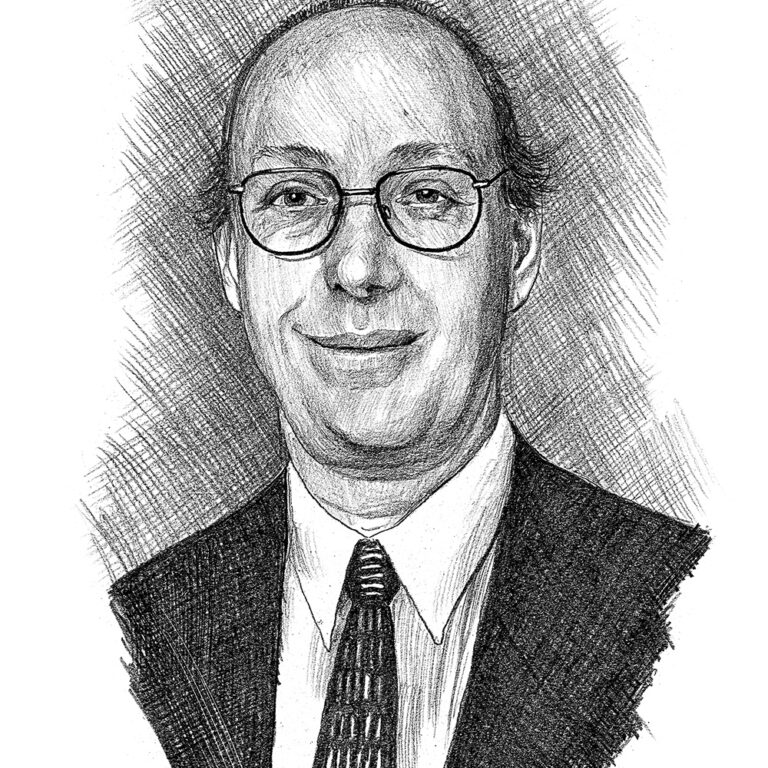

Professor Colin L. Masters
King Faisal Prize in Medicine 1997 Laureate
Topic: "Degenerative Diseases of the Nervous System "
It si highly likely that the genetic and environmental factors, which lead to Alzheimer’s disease will be fully elucidated in the near future. We are very optimistic that new therapeutic and preventative strategies will become realities

Colin Masters obtained a bachelor’s degree in physiology (First Class Honors) in 1967, an M.B.B.S. and an M.D. in medical neuropathology from the University of Australia in 1970 and 1977, respectively. After graduation from medical school, he served at the Royal Perth Hospital as a research fellow in the Department of Pathology at the University of West Australia and a Resident at Sir Charles Gairdner Hospital in Perth. He spent four years as a research fellow at the Department of Neuropathology in Massachusetts General Hospital in Boston, MA. and as a visiting scientist at the NIH Laboratory of Central Nervous System Studies in Bethesda, MD. Between 1980-1981, he was a Visiting Professor and Humboldt Fellow in Neurobiology at the University of Heidelberg, Germany, and for the next 7 years, he was a research fellow at the National Health and Medical Research Council of Australia. In 1989, he was appointed as a Professor and Head of Pathology at the University of Melbourne, and in 1999, he served as an Associate Dean (Research) of the Faculty of Medicine, Dentistry and Health Sciences at the University of Melbourne. He is a Fellow of the Royal College of Pathologists of Britain, the Royal College of Pathologists of Australia, Australian Academy of Science and Australian Academy of Technological Sciences and Engineering.
Professor Masters is widely regarded as the most eminent neuroscientist in Australia and one of the world’s foremost experts on neurodegenerative disorders. His interest in neurological diseases dates back to the 1960’s when he was still a medical student. For the next 30 years, he dedicated his research to the study of the nature and pathology of Alzheimer’s disease and other neurodegenerative diseases (such as Cruetzfeldt Jakob disease, Kuru and Gerstmann-Straussler-Scheinker Syndrome). In collaboration with Konrad Beyreuther of Heidelberg University, he studied the nature, structure, function and metabolism of amyloid plaques in Alzheimer’s disease. Masters current research focuses on identifying pathways through which environmental and genetic factors can operate to cause this disease.
Professor Masters received numerous other awards including the Presidential Award from the International Association of Gerontology in 1987, the Potamkin Prize from the American Academy of Neurology in 1990, and the Max Planck Research Award in 1991.
Professors Masters and Beyreuther have identified a protein known as 13A4 that is a major component of the amyloid plaques and have shown that a gene on chromosome 21 encodes for this protein which is part of a lamer protein called amyloid precursor protein (APP). They later studied the regulation of the synthesis and function of APP and its ability to bind to metallic ions. They hypothesized that the abnormal accumulation of pA4 protein underlies the neuronal changes that lead not only to Alzheimer’s disease but also to other degenerative diseases such as Creutzfeldt-Jakob disease, Their research opened the way to the rational development of novel drugs that can interfere with these pathological processes some chance of limiting or ameliorating these devastating diseases in the future. Professors Masters and Beyreuther have published 124 joint papers relating to this field as well as numerous other individual papers.
This biography was written in the year the prize was awarded.
- He held several positions including:
- Laureate Professor of Dementia research at the University of Melbourne in 2002.
- Executive Director of the Mental Health and Research Institute of Victoria in 2007.
- He co-founded Prana Biotechnology Limited in 1997.
- He received many awards including:
- Mayne Florey Medal in 2002.
- Lennox K. Black Prize in 2006.
- Grand Hamdan International Award in 2006.
- Lifetime Achievement Award in Alzheimer’s Research in 2006.
- Victoria Prize in 2007.



